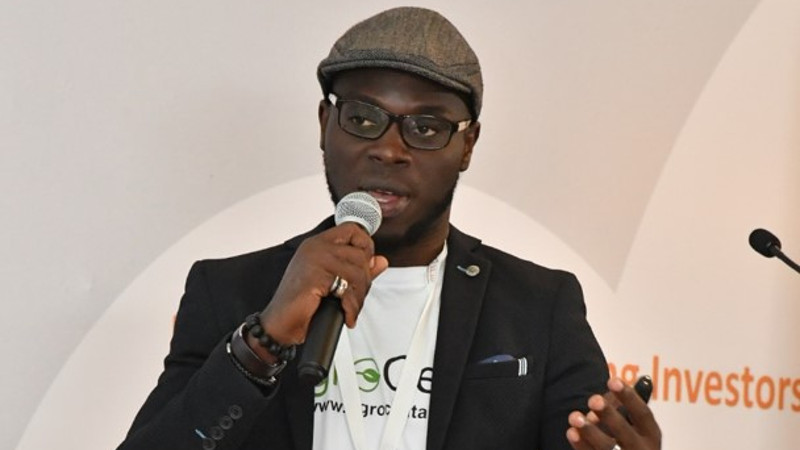After a stellar 2017, Ghanaian agritech startup AgroCenta has set its sights on expanding to Nigeria this year.
AgroCenta is built around online trading platform AgroTrade, which connects smallholder farmers to a larger structured market. Last year the startup was selected to represent Ghana at global pitching competition Seedstars World.
No ad to show here.
The startup currently has about 10 000 smallholder farmers (all in Ghana) on its platform and plans to launch a pilot in the third quarter of this year.
“Expansion into Nigeria in 2018 will focus on working with an initial 100 000 smallholder farmers, connecting them to about six large, medium and small scale off-takers to sell directly,” says AgroCenta CEO and co-founder Francis Obirikorang.
The startup also offers an on-demand logistics solution (TruckR), an information platform (AgroInfo) and a mobile money offering (AgroPay).
Between May and December last year, the startup facilitated a trade volume of around 2000 metric tonnes of maize, sorghum and soybean all while generating a revenue of $190 000.
AgroCenta has offtake agreements with Guinness Breweries and Nestle in Ghana
Last year the startup clinched several accolades including the Environment and Green Energy category at the World Summit Awards, the Young Entrepreneurs Competition at the World Export Development Forum and the Africa Social Good category at Tech Crunch Startup Battlefield Africa.
In addition, Seedstars World recently selected AgroCenta for its Seedstars Growth Programme, an investment arm of the Swiss organisation which provides high-growth startups with $50 000 as well as access to business advisory and marketing services.
Based on this wide acclaim, this startup is clearly onto something. But just how did AgroCenta come about?
Fixing the problem
In 2015 Obirikorang and Michael Ocansey — both former employees of agricultural information communication service Esoko — founded the startup after discovering that most farmers were losing about 40% of their potential income to middlemen.
“We started with trading, noticed the problem, then we fixed it,” says Obirikorang.
Although the two initially aimed to just set up a trading plan, Obirikorang says the two founders then decided to tackle other issues smallholder farmers face, such as logistics.
“Annually, logistical inefficiencies and exploitative buying accounts for about $200-million loss in potential revenue to smallholder farmers in Ghana,” he says.
Raising funding
The startup’s initial funding came from family and friends, with the co-founders investing $20 000 which covered among other things costs for research, recruiting agents, training and for building a minimum viable product.
In 2016, Greentech Capital Partners invested $10 000 into the company after the AgroCenta’s CEO connected with the German VC firm on LinkedIn.
To date, the German investors, along with other parties, have invested a total of $200 000 in AgroCenta and will this year act as the lead investor in the startup’s second round of funding as it aims to raise $750 000 by March.
The startup’s other investors include a New York-based family investment trust Isabaltic Trust, Ghanaian investment firm Frontier Business Solutions, SANAD Technical Facility in Jordan, and the World Trade Organisation.
Working with corporates
Today AgroCenta has an offtake agreement with several companies, including Guinness Ghana Breweries, and is looking to work with Nestle Ghana in 2018.
Obirikorang says he owes his company’s success to the decision by him and Ocansey to first focus on recruiting a “critical mass of farmers”. This then made it easy for the startup to then fulfil orders.
When he and Ocansey approached Guinness in March last year, the brewer had been importing sorghum from South Africa.
By taking over the contract to supply Guinness helped the brewer to cut costs by 40%, he said, adding that the company now sources 80% of its sorghum locally. Within the next five years he expects AgroCenta to supply 100% of the brewer’s sorghum requirements.
For most of AgroCenta’s clients, sourcing commodities is a major problem that is both very expensive and time consuming.
“So once you approach them and tell them that I can help you source locally, it’s a sigh of relief for them,” he said. “We are the quality control, the logistics and are looking for the farmers themselves,” says Obirikorang.
He believes the startup is “very scalable” and that it can be adapted to suit market needs anywhere on the continent.
Says Obirikorang: “Ideally in the next five years, we want to be the largest agriculture trading and exchange platform across the whole of sub-Sahara Africa”.
Featured image: AgroCenta CEO and co-founder Francis Obirikorang (Supplied)
*AgroCenta CEO and co-founder Francis Obirikorang subsequently contacted Ventureburn and notified us that the startup does not yet have an offtake agreement with Nestle Ghana, but is looking to work with the company this year.
